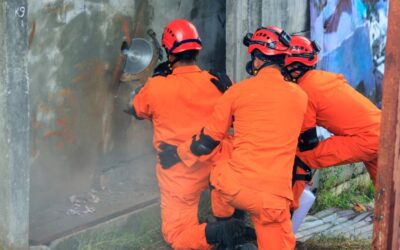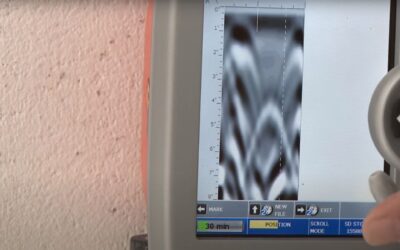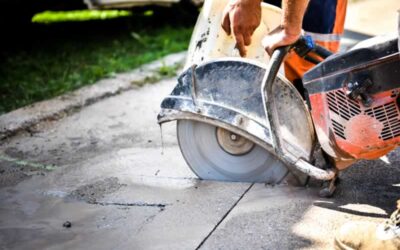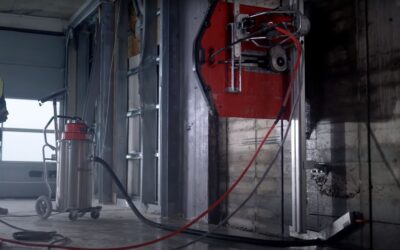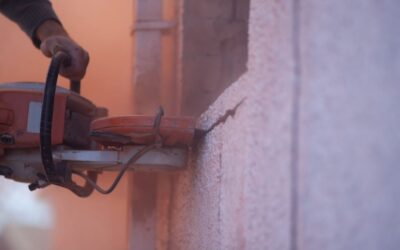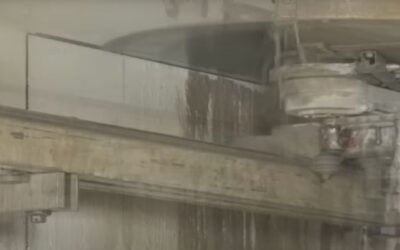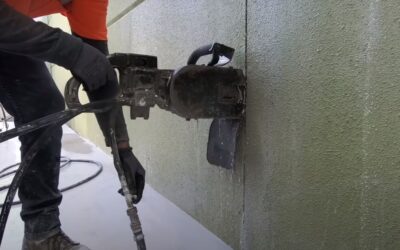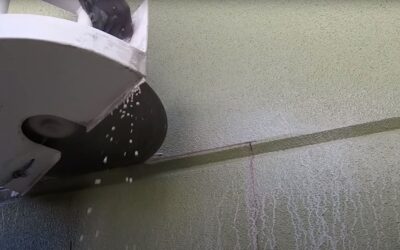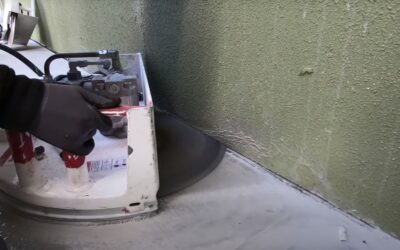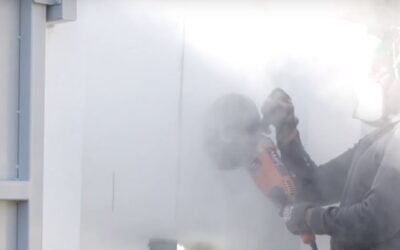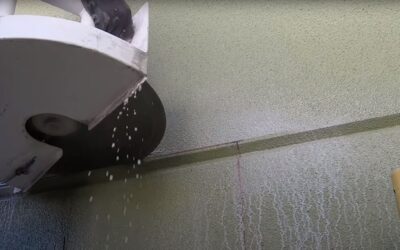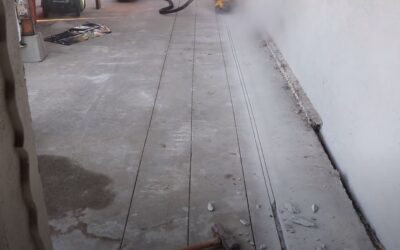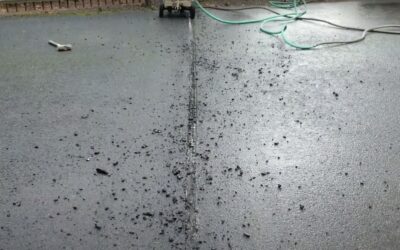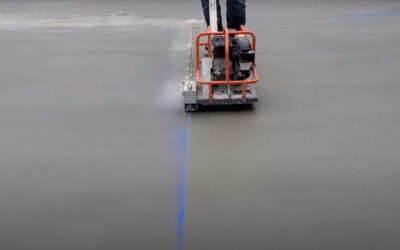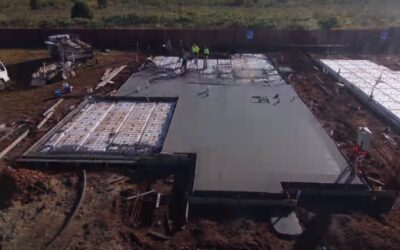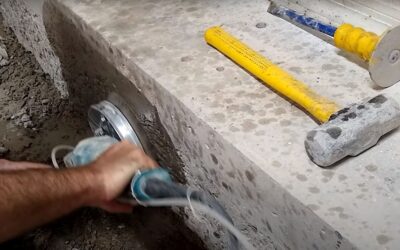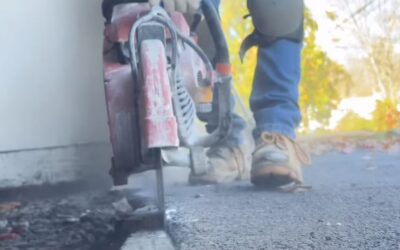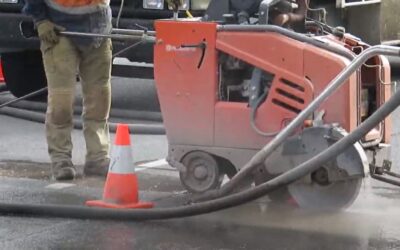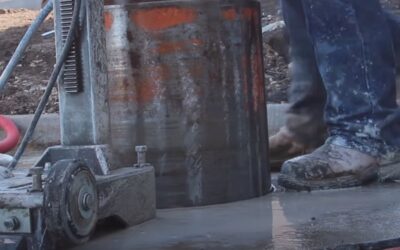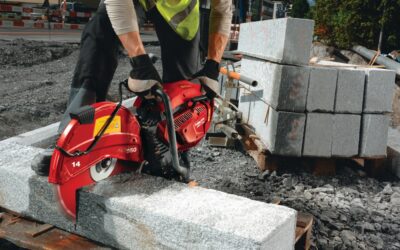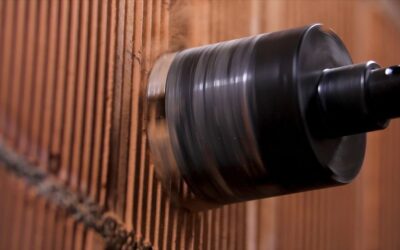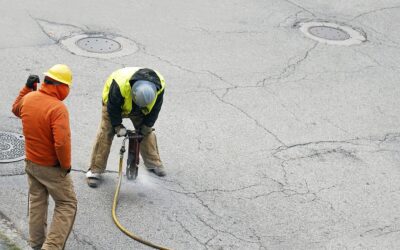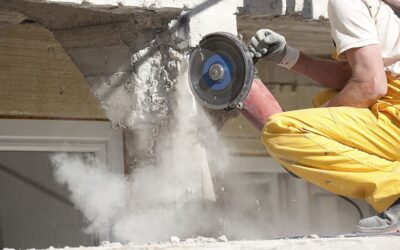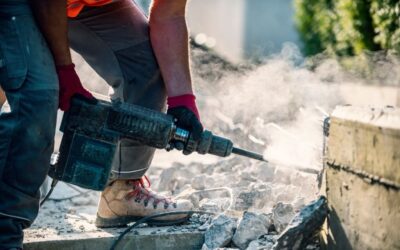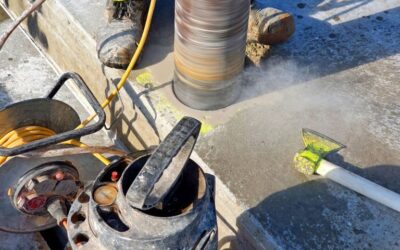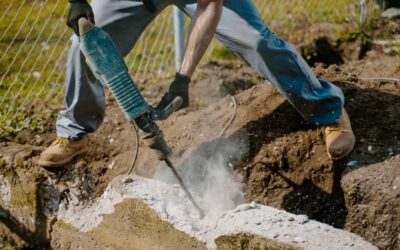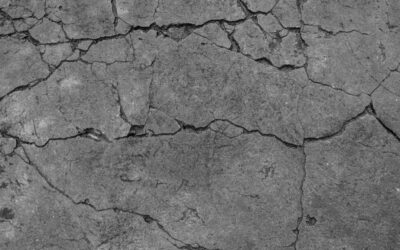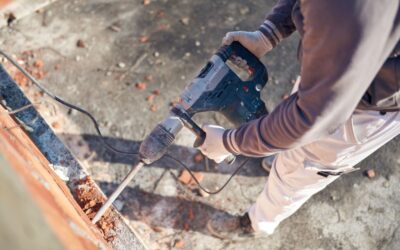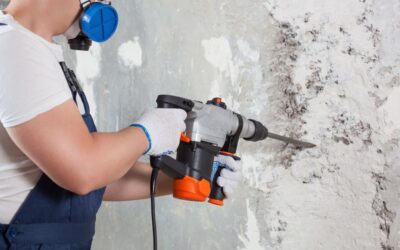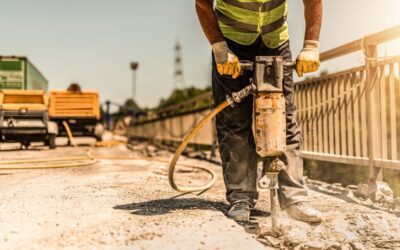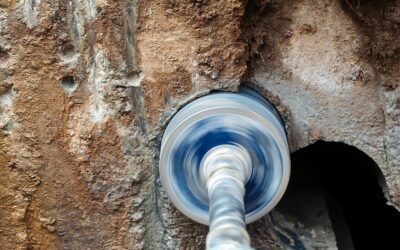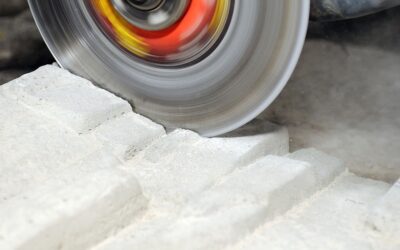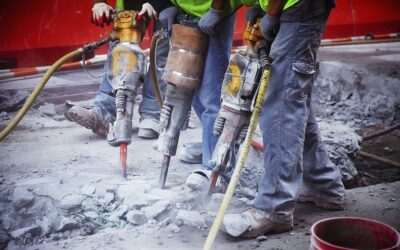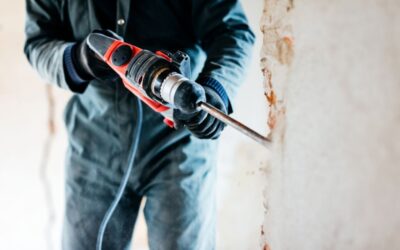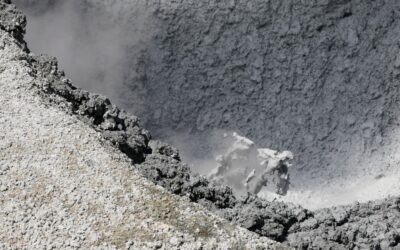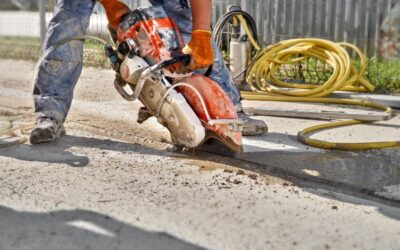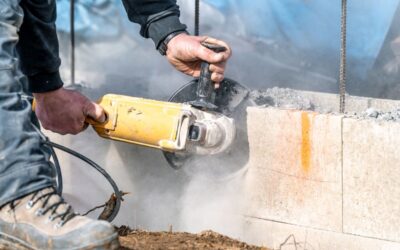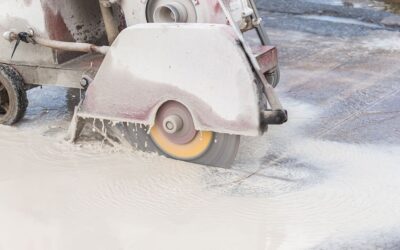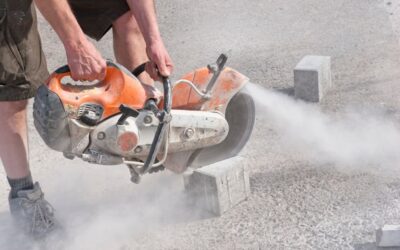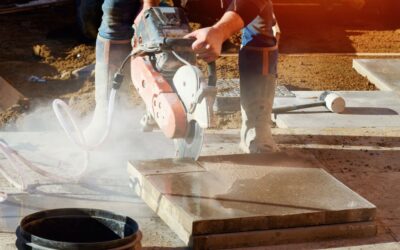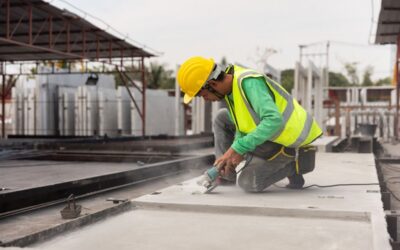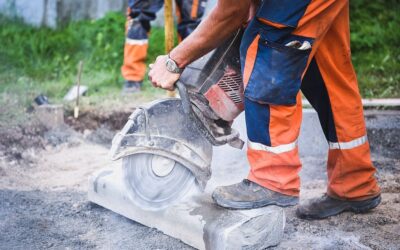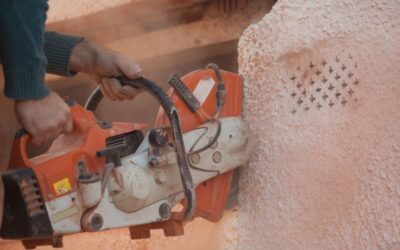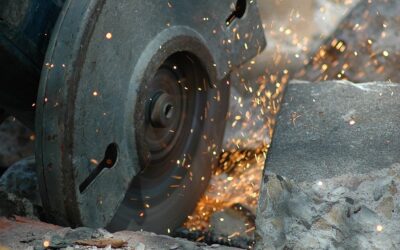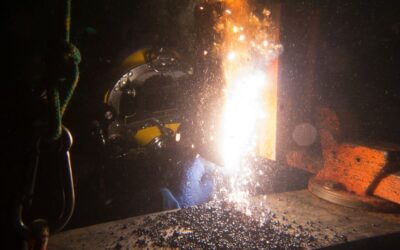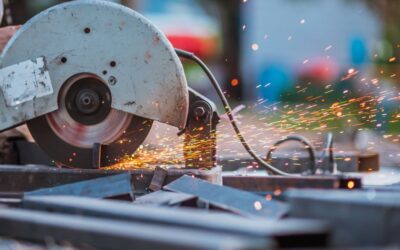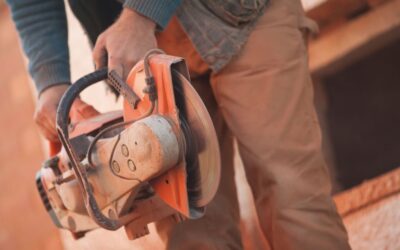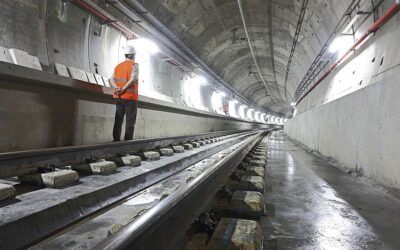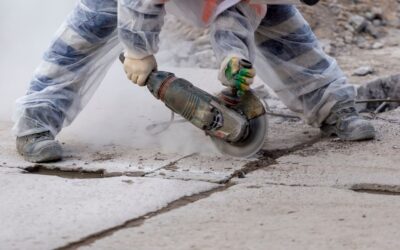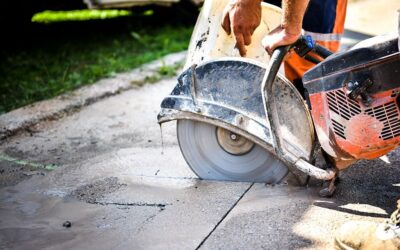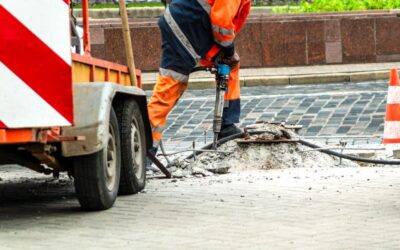Blogs and Articles
What Are the Risks of Cutting Concrete Indoors?
Cutting concrete indoors poses risks such as hazardous dust inhalation, toxic fumes, noise pollution, and physical dangers from equipment handling, necessitating strict safety measures and proper use of personal protective equipment.
What Personal Protective Equipment is Necessary for Cutting Concrete Pipes?
Effective personal protective equipment for cutting concrete pipes includes respirators, safety glasses, hard hats, high-visibility clothing, hearing protection, protective footwear, skin protection, and communication devices to ensure worker safety from various hazards.
How Does Ground Penetrating Radar (GPR) Help in Concrete Cutting?
How Does Ground Penetrating Radar (GPR) Help in Concrete Cutting? Revolutionizing Construction Safety and Efficiency: The Vital Role of Ground Penetrating Radar in Concrete Cutting Ground Penetrating Radar (GPR), an invaluable tool in the construction industry,...
What Steps Should Be Taken for Safe Concrete Cutting?
For safe concrete cutting, it’s essential to prepare the site, use the right tools and safety equipment, mark and cut the area accurately, manage dust, break and remove concrete responsibly, and conduct thorough clean-up and equipment maintenance
What Safety Equipment is Essential During Concrete Wall Cutting?
Essential safety equipment for concrete wall cutting includes safety goggles, respiratory protection, hearing protection, protective gloves, safety boots, and high-visibility clothing, each crucial for guarding against specific risks like debris, dust inhalation, and machinery noise.
What Are the Legal Risks of Cutting a Wall Without a Permit in Melbourne?
Wall Cutting Without a Permit in Melbourne Cutting a wall without a permit in Melbourne can lead to significant legal risks and consequences. These risks are governed by the Building Act 1993 and Building Regulations 2018, which set the framework for construction...
How do Professional Concrete Cutters Minimise Damage While Cutting Concrete?
Minimizing Damage in Concrete Cutting: Professional Practices Professional concrete cutters in Melbourne implement various strategies to minimize damage while cutting concrete. These practices ensure not only the structural integrity of the project but also the...
What Should Be Done Before Concrete Cutting or Drilling a Pre-Tensioned Structure?
Preparing for Cutting or Drilling Pre-Tensioned Structures When undertaking concrete cutting or concrete drilling activities in pre-tensioned structures, several crucial steps should be followed to ensure the safety and integrity of the structure, particularly...
What Are the Primary Risks Associated with Wall Cutting?
Understanding the Risks of Wall Cutting in Melbourne In the diverse and evolving landscape of Melbourne's construction industry, concrete wall cutting is a common practice that comes with its own set of risks. Identifying and managing these risks is crucial for...
Can Wall Cutting Affect Adjacent Structures or Properties?
Impact of Wall Cutting on Adjacent Structures in Melbourne Wall cutting in Melbourne's bustling construction scene is a common practice, but it's not without its challenges. Understanding the potential impact on adjacent structures is crucial for maintaining...
What Precautions Should Be Taken When Cutting Concrete Pipes?
Best Practices for the Safe Cutting of Concrete Pipes Cutting concrete pipes is a task that demands utmost attention to detail and safety. In Melbourne, like in any part of the world, this activity comes with its unique set of risks and precautions....
Can Angle Grinders Cut Concrete?
Angle grinders, when fitted with a diamond blade, are a versatile tool capable of effectively cutting concrete, requiring proper technique and safety measures for precise and safe operation.
How Can Cutting Into a Wall Compromise its Structural Integrity?
The Implications of Wall Cutting on Structural Integrity Understanding the Structure of Walls At the core of every building, especially in bustling Melbourne, walls play an indispensable role in holding up the structure. Made of various materials, from bricks...
Concrete Cutting Best Practices: How can one identify electrical lines or plumbing behind a wall?
Discover the intricacies of identifying concealed electrical and plumbing lines behind walls, while considering Melbourne’s unique architectural diversity and the importance of professional concrete cutters.
What Are the Hazards of Wall Cutting?
The Risks Involved in Wall Cutting Wall cutting and wall sawing, while being an integral part of many construction and renovation projects, comes with its own set of potential hazards. Understanding these hazards is crucial, not just for professionals in the field,...
How to Cut a Trench in a Concrete Slab?
The Intricacies of Concrete Trenching in Melbourne Why Trenching Matters In the heart of Melbourne's buzzing construction scene, trenching in concrete slabs stands out as a vital process. It's more than just cutting a groove; it's about creating pathways for...
What’s the Optimal Time of the Year to Cut or Repair Asphalt in Melbourne?
Melbourne’s Climate and Asphalt Work Melbourne, renowned for its four seasons in a day, plays a pivotal role in deciding the perfect time for asphalt works. From unpredictable showers to scorching heat waves, the climate greatly impacts the quality and duration...
What is the Best Way to Cut an Asphalt Driveway? Melbourne’s Leading Insights
Understanding Asphalt Composition Asphalt, predominantly used for constructing driveways in Melbourne and worldwide, is a blend of aggregates like crushed rock, sand, and bitumen. Its durability and flexibility make it a preferred choice. However, its very...
Why Do They Cut Lines in Concrete? Delving Deep into Melbourne’s Construction Processes
Understanding the Basics: Concrete and its Peculiarities Concrete, that quintessential material that has shaped much of Melbourne’s urban landscape, undergoes an intriguing transformation post-pouring. As it dries and solidifies, concrete has a tendency to shrink, and...
How Long After Pouring Concrete Can You Start Framing?
Dealing with concrete requires a keen understanding of its behaviour post-pouring. Factors such as curing time, the strength of cured concrete, local weather conditions, the mix variety, and others play a significant role. Deciphering these factors becomes essential,...
Is Concrete Dust Harmful? An investigation into Concrete Cutting Safety in Melbourne
Understanding Concrete Dust Composition Concrete dust is produced when concrete is cut, ground, or crushed. This dust is a complex mixture primarily composed of calcium compounds, silica, alumina, and other trace minerals. Silica, particularly in the form of...
What Are Some of the Uses of A Concrete Saw and which Saw Is Right For You?
Concrete cutting is a critical part of various construction projects, from renovations to utility installations. Navigating the array of tools available for the job, especially in the bustling city of Melbourne, can be daunting. But don't worry, we're here to guide...
What is the Best Way Cut An Asphalt Driveway?
The Importance of Precision in Asphalt Cutting: When it comes to Melbourne's bustling construction scene, accuracy is the name of the game, especially when cutting asphalt driveways. An improperly executed cut can lead to further damages, added expenses, and potential...
How Deep Can a Road Saw Cut? A Comprehensive Insight into Road Sawing in Melbourne
The Mechanics of Road Sawing Road sawing, a practice commonly used in Melbourne’s construction projects, requires precise equipment and skilled concrete cutters. This technique involves cutting horizontal flat surfaces, such as roads, bridges, and floors, using...
How Long Does a Concrete Coring Bit Last?
The Life Span of a Concrete Coring Bit: An Overview Understanding the life span of a concrete coring bit isn't as simple as attaching a fixed number of hours or projects to it. Several factors contribute to how long a concrete coring bit lasts, and understanding these...
What is the Best Way to Cut Thick Concrete?
Understanding the Nature of Concrete Cutting Concrete cutting is a specialised process that involves the removal of concrete structures. Melbourne concrete cutters utilise various methods depending on the thickness, location, and purpose of the cut. Thick concrete, in...
What is it Called When You Cut Concrete?
Demystifying Concrete Cutting Cutting into a slab of concrete is a procedure we refer to as concrete cutting, a common task in the construction industry. You'll come across it in various home improvement projects, especially those in Melbourne's rapidly growing...
Rotary Hammer Drills – How to use them safely and more.
Some examples of rotary hammer drills used in Australia include: Bosch GBH 2-26 DRE: The Bosch GBH 2-26 DRE is a versatile and powerful rotary hammer drill suitable for various drilling and chiseling tasks. It features multiple modes for drilling, hammering,...
Australia’s preferred Pneumatic Chipping Hammers.
Some examples of pneumatic chipping hammers used in Australia include: Atlas Copco Tex 05PE: The Atlas Copco Tex 05PE is a popular pneumatic chipping hammer known for its lightweight design and versatility. It is suitable for light to medium concrete chipping...
Flinders Street Station Restoration – Concrete Cutting done successfully.
The restoration of Flinders Street Station in Melbourne is a significant project aimed at preserving and enhancing this iconic railway station. Here is a detailed overview of the Flinders Street Station Restoration, focusing on the construction aspects and notable...
Rock Cutting Beasts. Melbourne’s Tunnel Boring Machines.
The Melbourne Metro Tunnel Project utilizes Tunnel Boring Machines (TBMs) for the excavation of the tunnels. TBMs are specialized machines designed to bore through various types of ground, including soil, rock, and mixed geological formations. Here is a detailed...
The Melbourne Convention and Exhibition Centre Expansion – Concrete Cutting Excellence
The Melbourne Convention and Exhibition Centre (MCEC) Expansion is a significant development project that aimed to increase the capacity and enhance the facilities of the existing MCEC complex. Here are some details about the expansion project: Purpose and History:...
Some notable concrete structures in Melbourne
Here are a few notable concrete features/structures in Melbourne, along with the types of concrete cutting and coring techniques commonly used in such projects: Melbourne Convention and Exhibition Centre Expansion: The expansion of the Melbourne Convention and...
Is concrete cutting hard?
The process of concrete cutting can be physically demanding and technically challenging, requiring the use of specialized equipment and knowledge of proper cutting techniques. However, the difficulty of concrete cutting can vary depending on the specific project and...
Can I use a regular drill instead of a hammer drill for concrete?
Using a regular drill instead of a hammer drill for concrete drilling is possible for small-scale or light-duty applications. However, it's important to note that drilling into concrete with a regular drill can be more challenging and less effective compared to using...
Can I drill concrete with regular drill?
Drilling into concrete with a regular drill, also known as a standard drill or non-hammer drill, can be challenging and may not produce satisfactory results. Regular drills are typically designed for drilling into wood, metal, and other softer materials, and they lack...
Is there a trick to drilling into concrete?
When it comes to drilling into concrete in Melbourne, using the right tools and techniques is essential. Hammer Drill: A hammer drill is the primary tool used for drilling into concrete. It combines rotary drilling with a hammering action to penetrate the...
At what thickness will concrete crack?
Concrete cracking is influenced by various factors, including the thickness of the concrete, the type of aggregates used, and other variables. However, it is important to note that it is challenging to determine an exact threshold thickness at which concrete will...
How do you keep concrete from cracking when drilling?
To minimize the risk of concrete cracking when drilling in Melbourne, you can follow these guidelines: Use the Correct Equipment: Ensure that you use the appropriate drill and drill bit specifically designed for drilling into concrete. A hammer drill equipped...
Should you use water when hammer drilling concrete?
In Melbourne, it is generally recommended to use water when hammer drilling concrete, particularly for large-scale drilling projects or when working in sensitive environments. While there might not be specific regulations mandating the use of water, it is considered a...
How do you break thick concrete without a jackhammer?
Breaking thick concrete without a jackhammer can be a challenging task, but Melbourne concrete cutting experts employ alternative tools and processes to accomplish this. While the specific methods may vary depending on the circumstances, here are some common...
Does concrete need to be wet to cut?
In terms of regulations, it is essential to follow local guidelines and regulations when conducting concrete cutting in Melbourne. These regulations may include noise restrictions, dust control measures, safety requirements, and environmental considerations. However,...
Does salt harden cement?
Salt does not typically harden cement or concrete in Melbourne or anywhere else. In fact, salt can have adverse effects on concrete and may contribute to its deterioration. When salt comes into contact with concrete, especially in areas with freeze-thaw cycles or high...
Do you need to wet concrete to cut it?
No, you don't always have to wet the concrete before cutting it, but it can be a good idea in certain situations. Let me break it down for you with some Aussie-style detail: Wetting the concrete before cutting has its benefits. One major advantage is that it helps to...
Should I wet concrete before cutting?
Wetting the concrete before cutting is a common practice and can provide several benefits. However, whether to wet the concrete or not before cutting depends on various factors, including the type of cutting equipment, the size and thickness of the concrete slab, and...
Is it hard to jackhammer concrete?
Jackhammering concrete in Melbourne can be a physically demanding task, but the difficulty will depend on several factors, including the type of concrete, its thickness, and the specific jackhammer used. Here are some considerations for jackhammering concrete in...
Will a hammer drill break up concrete?
Yes, a hammer drill can be used to break up concrete in Melbourne. However, it's important to note that the effectiveness of a hammer drill for concrete demolition will depend on various factors, including the type of concrete, its thickness, and the specific hammer...
Is it better to cut concrete wet or dry?
Whether to cut concrete wet or dry depends on several factors such as the type of cutting equipment, the size and thickness of the concrete slab, the environmental conditions, and the desired cutting quality. Here are some advantages and disadvantages of cutting...
Can you cut concrete with a regular chainsaw?
Using a regular chainsaw to cut concrete is not recommended in Australia. Chainsaws are designed for cutting wood and are not suitable for cutting through the hard materials and aggregates present in concrete. Attempting to cut concrete with a chainsaw can pose...
What blade is best for cutting concrete?
When it comes to cutting concrete in Melbourne, diamond blades are commonly used due to their durability and effectiveness. Diamond blades are designed specifically for cutting through hard materials like concrete. Here are some types of diamond blades used for...
Should I saw cut or hand cut concrete?
Whether to use saw cutting or hand cutting for concrete depends on various factors, such as the scope of the project, the desired precision, available equipment, and the expertise of the individuals involved. Here are some considerations for both methods: Saw Cutting:...
How deep should I cut my concrete slab?
The depth at which you should cut your concrete slab depends on several factors, including the slab's purpose, dimensions, concrete specifications, reinforcement (such as rebar or post tensioning), and any applicable regulations. While I can provide general...
What tool do you use to cut a slab?
The availability of specific brands and suppliers can vary over time, and it's best to conduct your own research to find the most up-to-date and relevant information. However, I can provide you with general information on the types of tools commonly used to cut...
What happens if you don’t cut a concrete slab?
If a concrete slab is not cut properly or not cut at all when required, it can lead to several potential issues: Unintended Cracking: Concrete slabs undergo expansion and contraction due to temperature changes and moisture variations. If expansion joints or control...
Can I cut concrete slabs with circular saw
Yes, it is possible to cut concrete slabs using a circular saw, but it requires the use of a specialized diamond or abrasive blade designed for cutting through concrete. Here are the steps to follow: Safety Precautions: Put on safety goggles, a dust mask, ear...
What do I need to cut a concrete slab?
To cut a concrete slab in Melbourne, you will need the following tools and resources: Tools: Diamond-tipped concrete saw: This is the primary tool used for cutting through concrete. Depending on the size and thickness of the slab, you may need either a handheld saw or...
What is the easiest way to cut concrete?
Cutting concrete typically requires specialized equipment and expertise. The easiest way to cut concrete in Melbourne, or anywhere else, is to hire a professional concrete cutting service. These professionals have the necessary tools and knowledge to handle concrete...
Percussion Tools the professionals favour
In Australia, concreting professionals may use a variety of percussion tools for cutting or shaping concrete. Here are some percussion tools commonly favored by professionals in the concrete industry: Demolition Hammer: A demolition hammer, also known as a chipping...
Underwater Cutting – Notable examples in Melbourne and Australia
In Melbourne and Australia, there have been instances of underwater concrete cutting and coring for various purposes, including infrastructure maintenance, repairs, and construction projects. Here are a few notable examples: Sydney Harbour Tunnel (Sydney, Australia):...
Melbourne’s Bridges and how concrete was cut to make them.
There are several major bridges in Melbourne where concrete cutting tools are commonly used for maintenance and repair purposes. Some notable bridges in Melbourne and the cutting tools used on them include: West Gate Bridge: The West Gate Bridge is one of Melbourne's...
Melbourne’s Busy Motorways – maintained with superior cutting tools
The maintenance of Melbourne's busy motorways involves the use of various cutting tools and equipment to ensure the proper upkeep and functionality of the road infrastructure. Some common cutting tools used in motorway maintenance include: Diamond Blades:...
What is a Demolition Hammer and how are they used?
A demolition hammer is a heavy-duty power tool used for breaking, chipping, and demolishing concrete, masonry, and other hard materials. It is commonly used in construction, renovation, and demolition projects. Demolition hammers operate by delivering a high-impact...
Melbourne Metro Tunnel Project, an example of superior concrete construction
The Melbourne Metro Tunnel Project is a major infrastructure development aimed at improving Melbourne's rail network and addressing growing transportation demands. Here are some details about the project, including its purpose, design, and associated risks: ...
How do you cut concrete without a saw?
There are several methods for cutting concrete without using a saw. Here are a few alternative techniques: Percussion Tools: Percussion tools such as a chisel and hammer or a chipping hammer can be used to manually chip away at the concrete. This method is...
Concreting marvels of modernity – The West Gate Tunnel Project
The West Gate Tunnel Project is a significant infrastructure project in Melbourne, Australia. Here are some details about the project, with a particular focus on concrete and cutting: Purpose and History: The purpose of the West Gate Tunnel Project is to...
What is the best tool for cutting concrete?
The best tool for cutting concrete depends on the specific requirements of your project, including the thickness and type of concrete, as well as the desired cutting method. Here are some commonly used tools for cutting concrete: Concrete Saw: A concrete saw,...
Where can I cut concrete slabs?
Cutting concrete slabs typically requires specialized tools and equipment due to the strength and density of concrete. Here are some common options for cutting concrete slabs: Concrete Cutting Companies: Look for local concrete cutting companies or contractors...
Electric Jackhammers used in Melbourne
Some examples of electric jackhammers used in Australia include: Makita HM1307CB: The Makita HM1307CB is a powerful and versatile electric jackhammer known for its performance and durability. It is commonly used in construction and demolition projects and...


